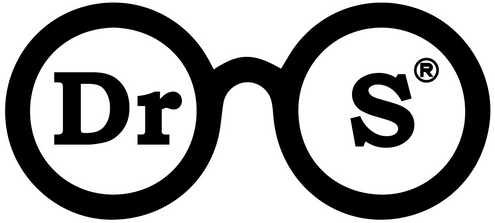
Over the past few years, there has been a growing awareness surrounding the dangers of blue light exposure. In particular, the blue light emitted from the screens of our electronic devices can be the most harmful to our health.
Excessive blue light exposure can increase the risk of macular degeneration, the leading cause of vision loss. It also can disrupt our circadian rhythms, causing sleeplessness at night and fatigue during the day.
Blue light blocking glasses, also known as blue blockers, claim to limit the amount of blue light reaching the wearer’s eyes, thus cutting down blue light exposure and improving your overall health. But do they work? Well, here’s what the experts have to say.
From The Experts
Blue wavelengths during the daylight hours can be quite beneficial. They boost attention, focus, reaction times and even your mood. But when the sun goes down, doctors say blue light can become detrimental to your health. Here’s how they say blue blockers can help.
How Do Blue Blockers Affect Sleep?
Maxine Builder, New York Magazine investigative reporter, wrote that in a perfect world, you’d actually start to avoid blue-enriched light from screens four hours before bedtime.
Cathy Goldstein, an assistant professor of neurology at the University of Michigan Sleep Disorders Center, admitted to New York Magazine that “that is hard for a lot of people to swallow, so we do sometimes recommend blue light blocking glasses at that time.” Builder goes on to reveal that there is now a growing body of research to back up the claim that blocking blue light before bed can ultimately help you sleep better.
This is because blue light exposure from devices before bed or during the nighttime has been found to disrupt the body’s circadian rhythm over time.
What About Your Overall Health?
Researchers have even been studying the association between dysfunctional sleep-wake cycles and other health problems like diabetes and certain forms of cancer. The American Optometric Association has been closely watching and studying Americans’ digital device use over the last few years.
The systemic effect of blue light is something Bryan Rogoff, O.D., a private practice consultant, always talks to his clients about, especially for different practice models. As doctors of optometry join accountable care groups and move toward a coordinated care model, Dr. Rogoff urges them to screen patients for blue light eye damage – and conduct a thorough case history that incorporates patients’ sleep patterns – and how it relates to metabolic and cardiovascular changes that affect their bodies.
Dr. Joseph Mercola, a well-known osteopathic physician, also believes blocking blue light serves an important biological purpose; helping to not only regulate your internal clock, but to protect your overall health and well-being. By utilizing blue blockers, users can correct their circadian rhythm and sleep cycle. And by getting a good night’s sleep, you can help strengthen your memory, sharpen your attention, curb inflammation, lower anxiety and more.
Exposure to artificial light, Mercola explains, is one of the largest, often-overlooked health risks of the 21st Century. Our early ancestors did not face this problem, as they started and ended their day with the rise and fall of the sun, synchronizing their circadian rhythm almost perfectly. Today, our bodies are still attuned to this internal clock, however, most people living in the developed world no longer go to sleep when the sun sets.
Instead, we turn on LED lights, computers, televisions, tablets and smartphones, all of which expose us to varying amounts of blue light at a time of day when there’s supposed to be next to none, says Mercola. Your body is understandably confused as a result. It’s now becoming clear that one of the least expensive and simplest ways to protect your body’s internal rhythm, and thereby support healthy sleep and a lowered risk of many chronic diseases, is to wear blue light blocking glasses, not just at night but anytime you are exposed to artificial lights.
How About Your Eye Health?
Wearing blue blockers are indeed recommended to help to limit the amount of blue light your eyes are exposed to. New York-based optometrist Dr. Fran Reinstein recently explained to Zocdoc how you can benefit from reducing the amount of blue light reaching your eyes.
“They reduce eye fatigue, headaches and blurred vision – all of which are associated with computer vision stress,” says Reinstein. “People who use them have much less eye strain.”
If you do want to try a pair of blue blockers, make sure you get a pair that has been tested for its blue light blocking capabilities.
Try Blue Blockers Today
Did you know that Dr. S Eyewear’s blue light glasses have been tested and found to block up to 99 percent of blue light? While blue light blocking glasses are clearly not a cure-all, they can help to combat the potential harmful effects of blue light exposure.
Want to learn more about how Dr. S Eyewear’s blue light blocking glasses can help protect your vision? Call or contact Dr. S Eyewear today.
